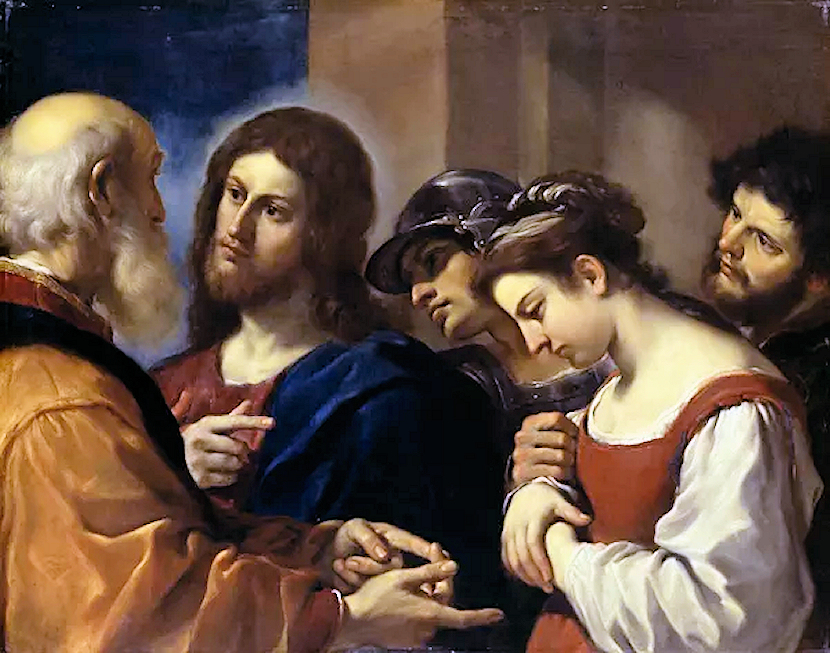There are two ways of meeting our obligations to love one another. One is by following the details of the law, the other is by love. The woman caught in adultery in John’s Gospel, chapter eight, broke the details of the law and, according to the law, she was to be stoned to death. But Jesus offered another law and that was the law of love. He forgave the woman, and simply said: “Go and sin no more.”
According the Mosaic law, the best way to secure justice was by the law. Jesus gave a different answer. The best way to secure justice is by love. The only debt we owe one another is to love one another for the one who loves another has fulfilled the law. (Romans 13:8). The golden rule which Jesus gave us is to do unto others what you wish them to do unto you. This is a restatement of something else He said, that the meaning of life is to love God and your neighbor as yourself. Love of God and love of neighbor are two sides of the same coin: you cannot love God without loving your neighbor, and you cannot love your neighbor without loving God.
Many Christians, unwittingly perhaps, see love as an option rather than a debt they owe to each other. Love is not something we may choose to do or not to do. Of course, we are free to love anyone we choose as far as intimate relationships are concerned. This, however, is a different kind of love. It is the love that exists between the sexes, between members of the same family, and between friends. The love of the Christian is a higher calling. It is something we owe to God and to one another, and Jesus is the perfect example of this kind of love.
How often people make excuses for their actions when they feel they don’t owe somebody anything. We hear this, for example, when a needy person is dismissed with the angry retort: “Stop bugging me.” Of course, we do not owe them in the legal sense, but we do indeed owe them in the way Jesus shows us.
Many people today suffer from a serious lack of awareness and sensitivity for their fellow human beings. When they hear that a country is devastated by drought and famine, do they feel they owe them? When they hear that war is destroying the infrastructure of certain countries and wiping out generations of people, do they feel they owe them? The legally minded will say, “No, we don’t.” Jesus says, “yes, we do,” and wants us to show our love towards all our brothers and sisters the way He has loved us.
Jesus entered our world to show us this kind of perfect love which is called, agape, in the new Testament. It is God’s unconditional love for all human kind, and our unconditional love for others, even for our enemies. May you possess this love that fills your heart with the joy of giving, and with the joy of seeing Christ in the least of your brothers and sisters.
—Fr. Hugh Duffy











6 Comments
Paul Reckamp
Beautiful song. She sings like an Angel.
Tom Walsh
Thank you Fr. Hugh for this indepth insight into the Love of God. It is very much appreciated. I wish you continued Love, Joy, Peace and Happiness in your Ministry. Tom
Hugh Duffy
Thanks,Tom, for your kind words.
Bartholomew Okere
Fr. Duffy, your theme, “Perfect Love” resonate with Jesus’ encounter with the Scholar of the Law who tested Jesus by asking which is the greatest commandments in Mt’s gospel 22:34ff. Love of God & self Jesus says are the greatest as you pointed out.Wish people could abide by these perfect commandments so the world will be a better place to live. Thanx!
Rick
Father,
When would you say punishment is appropriate?
Hugh Duffy
That’s such a complicated question, Rick. It depends on each particular action, and there are always different ways or types of punishment to deal with various infringements. Jesus’s message of unconditional love is the appropriate way to behave for everyone. Few follow it.